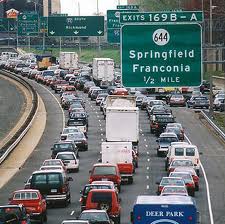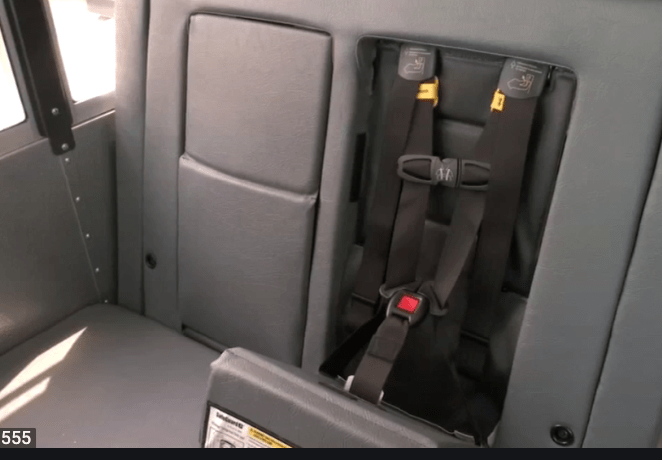( – promoted by lowkell)
 by Paul Goldman
by Paul Goldman
Having helped then gubernatorial candidate Mark Warner with his regional transportation tax referendum proposals in 2001, I naturally have no problem with the latest proposal for a regional referendum in Tidewater being pushed by several area delegates.
While Warner has turned strongly against using the referendum approach, I think he is being short-sighted in that area. In the end, it is the people’s money; giving them more power, not less, is a good thing, not a bad thing. Right now, the General Assembly seems deadlocked again. At those times, one has to be practical: and in this instance, going directly to the public can help.
Moreover, the history of Virginia has found that referendums – used sparingly but fearlessly when needed – have been highly beneficial to the Commonwealth. Sometimes the folks in Richmond can’t get the job done. Then, the people have to step in.
Additionally, in Virginia, we only have advisory referendums, not binding ones as in California and many of the Western states, where the progressive movement at the turn of the last century held sway.
Here in Virginia, advisory referendums played a key role in establishing, for example, the lottery when the General Assembly proved unable to resolve the issue. In previous years, statewide referendums actually shot down horse racing and other forms of gambling. Moreover, all changes to the state constitution must be done by referendum, indeed a binding one. So there is ample precedent.
MORE TO THE POINT: In terms of transportation policy, a 1920’s statewide referendum ESTABLISHED THE GAS TAX AS THE METHOD FOR FUNDING ROADS IN THE STATE.
Indeed, Virginia voters back then rejected the “borrow and spend” policies of Governor McDonnell for a far more fiscally responsible approach: that is to say, they voted for higher gas taxes and less putting the burden on future generations to pay.
This is forgotten today, because former Governor Byrd is remembered – and rightly so – as an ardent segregationist and head of political dynasty that ruled the state by manipulating prejudices.
But he actually came to power by building an anti-debt image by supporting higher taxes for road funding, the major spending issue for state government back then. This was due to his realizing his largely rural constituency needed roads to get their good to market. Franklin Delano Roosevelt also backed gas taxes a generation before when starting out as a candidate for state senate in a rural area. He too realized his voters needed better roads, due in part to his having traveled the district in a car and gotten stuck often in the muddy back roads.
FAST FORWARD TO 2013: With all due respect to the GOP lawmakers talking regional referendums, this isn’t just a regional problem. Road policy is a fundamental state issue, and we need a better state policy.
THUS: Why not a statewide referendum?
I believe the following: The voters of Virginia would defy the conventional wisdom and vote to allow the gas tax to rise TO COVER THE COST OF MAINTAINING THE ROADS.
They would likely reject any effort to raise taxes for the sole purpose of building new roads most will not use. But everyone has a stake in maintaining the roads they do use. This is a growing expense. It is impacting new construction money too.
Virginians know the facts. They need to be trusted on this. Why not do what worked almost 100 years ago? Give the voters a chance to lead the way. Put a statewide advisory referendum on the ballot next year asking voters to choose.
Then-State Senator Byrd defied the governor’s call for more debt, instead crisscrossing the state to defeat a statewide bond referendum by saying it would be better to raise taxes as opposed to going into more debt. Everyone thought he was crazy: But the voters backed the idea.
If Tidewater wants a separate referendum, then I say, it’s their right as Virginians. But this is ultimately an issue requiring a statewide generated solution.
At some point, you’ve got to trust the people: you can’t have a democracy where leaders think they have to protect the people from themselves.
Warner and Kaine are not fans of referendums. Neither is the Democratic GA leadership. I respect their opinions. But right now, a statewide referendum appears to be the only approach that can be enacted anytime soon.
Again: It is only advisory. What can be bad about giving the people a chance?
Warner lost his two regional referendums, but it didn’t hurt his career. The public appreciates leaders who try to solve problems. No one is right about everything. But when you are in a ditch, you’ve got to stop digging.
I say give the voters a shot at breaking the deadlock on road funding. It’s their money: let them have a direct say on the matter.

![Rep. Don Beyer (D-VA08) on “reports of the devastating effects Donald Trump’s Project 2025 agenda would have on [Metro]”](https://bluevirginia.us/wp-content/uploads/2024/10/trumpmetro.jpg)














